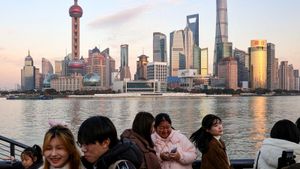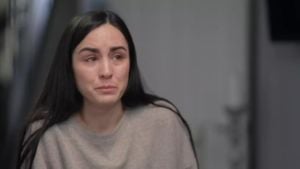Japanese television announcer Sayo Morokoku has recently made headlines with her notable decision to freeze her eggs as she navigates the challenges posed by polycystic ovary syndrome (PCOS). At 32 years old and single, Morokoku has chosen to embrace her health struggle openly, inspiring discussions about women's health and family planning.
Morokoku, who graduated from the University of Tokyo and was crowned Miss Tokyo University, took to social media before February 24th to share her decision. "I am 32 years old and single with no marriage plans/PCOS (AMH 38)," she wrote, indicating not only her personal status but also the medical condition affecting her. PCOS, which is characterized by irregular menstruation and the presence of small cysts on the ovaries, can lead to fertility issues—a challenge Morokoku seems eager to confront rather than shy away from.
During her announcement, she expressed, "I want to expand my options for the future and have frozen my eggs." This statement highlights her proactive approach to family planning, emphasizing the importance of having choices available, especially for those experiencing health complications like PCOS.
Morokoku's struggle with this syndrome is significant; it is noted by the Japanese Society of Endocrinology to be one of the notable causes of irregular cycles and infertility for women. By publicly discussing her condition and subsequent decisions, Morokoku aims to shed light on the challenges faced by many women at her stage of life.
She also took to social media to elaborate on her feelings surrounding the procedure: "There are various opinions, and the burden differs for each person; I also had my struggles. I want to convey the importance of knowing and confronting one's body." This candid statement invites dialogue about the nuances of women's health, particularly amid cultural pressures surrounding marriage and motherhood.
Morokoku's announcement not only reflects her personal health choices but also speaks volumes about societal expectations placed upon women. Being both professionally active and addressing health issues sets her apart as a voice for many who might feel pressured to conform to traditional timelines for marriage and family.
The segment discussing her egg freezing process aired on February 21st on 'Kansai Information Network Ten,' signifying her intent to amplify this discussion on national television. The platform allowed her to reach wider audiences, encouraging conversations about women's reproductive health and the various paths women can take.
Morokoku's role at Yomiuri Television since 2015 has positioned her prominently within public discourse. With appearances on popular shows like 'Osaka Honwaka Television' and 'Morning Wide Su-Matan!', she has developed a rapport with viewers, making her message more potent. Her decision to share such private elements of her life intertwines with her public persona, creating resonance with many who may be enduring similar circumstances.
This move toward transparency is especially pertinent as discussions of women's health issues gain traction within society. Introducing her story within the broader dialogue permits others battling similar health challenges to feel seen and understood. Morokoku embodies the empowerment of women choosing their futures, even when faced with fertility complications.
Morokoku's advocacy for egg freezing expands the conversation surrounding women’s rights to make informed decisions over their bodies and futures. Although there remains societal pressure for women to conform to specific life goals, her story encourages mindfulness and consideration beyond conventional expectations.
Endeavors like Morokoku's not only empower individual women but can potentially reshape societal views on single parenthood and family structures. Her presence on media platforms serves to inspire and inform, fostering greater awareness of how women can handle their reproductive health actively.
By bravely sharing her personal story, Morokoku paves the way for constructive dialogue about women's reproductive rights and health, allowing future generations to navigate their choices with informed certainty.



